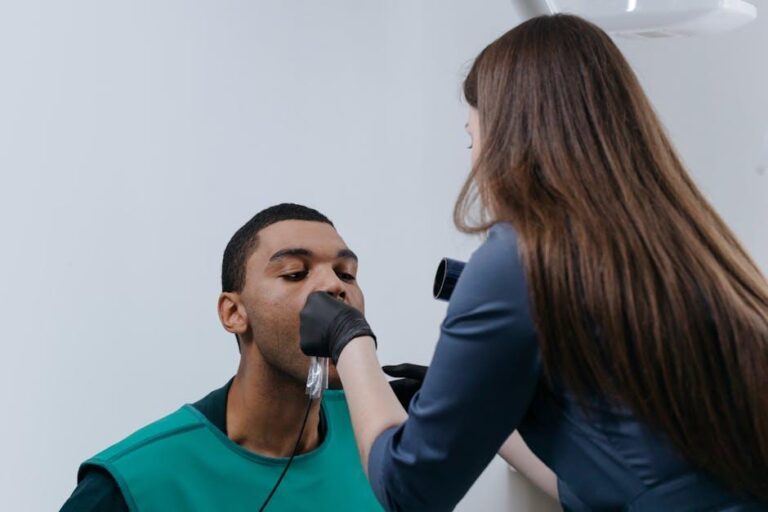
Dental Providers Treating Patients with IDD: Insights from Spectrum News
Patients with Intellectual and Developmental Disabilities (IDD) often face unique challenges when it comes to accessing quality dental care. Fortunately, as awareness grows, dental providers specifically trained to treat patients with IDD are becoming more available and better equipped to serve this community. In this comprehensive article, we explore how dental providers cater to patients with IDD, highlight the benefits of specialized care, share practical tips for families, and present valuable insights from Spectrum News coverage.
Understanding the Importance of Specialized Dental Care for Patients with IDD
Intellectual and Developmental Disabilities affect millions of individuals worldwide, impacting various areas of functioning including communication, cognition, and physical abilities. Dental health is a critical component often overlooked in this population due to behavioral challenges, difficulty with oral hygiene routines, and limited access to accommodating dental services.
Specialized dental providers are trained to address these challenges by tailoring treatment plans, using adaptive communication strategies, and employing behavior management techniques designed specifically for patients with IDD. This ensures that patients receive compassionate, comprehensive, and effective dental care in a supportive environment.
Who Are Dental Providers for Patients with IDD?
Dental providers for patients with IDD may include:
- General Dentists trained with additional education or experience in special needs dentistry.
- Special Needs Dentists who dedicate their practice exclusively or predominantly to patients with intellectual, physical, or developmental challenges.
- Pediatric Dentists who often have additional training in managing behaviors and oral health conditions common in children with IDD.
- Dental Hygienists certified in special care dentistry to assist with routine and preventive care.
Key Benefits of Specialized Dental Providers for Patients with IDD
Accessing dental care from providers experienced with IDD patients offers multiple advantages including:
- Customized Patient Interaction: Providers understand non-verbal cues and adapt communication for patients with limited speech.
- Behavioral Techniques: Use of desensitization, distraction, sedation options, and positive reinforcement to reduce anxiety during treatment.
- Multidisciplinary Coordination: Collaboration with caregivers, therapists, and medical professionals to deliver holistic care.
- Enhanced Safety: Knowledge about medical comorbidities and medication interactions leading to safer treatment plans.
- Inclusive Environment: Clinics equipped with accessible facilities and staff trained for empathy and support.
Practical Tips When Choosing a Dental Provider for Patients with IDD
If you are a caregiver or family member looking for an ideal dental provider for someone with IDD, consider the following guidelines:
| Factor | What to Look For |
|---|---|
| Provider Experience | Years treating patients with IDD, special certifications in special care dentistry |
| Facility Accessibility | Wheelchair access, sensory-friendly environment, calming waiting areas |
| Communication | Use of visual aids, patience with patient behavior, caregiver involvement |
| Flexibility | Appointment length adjustment, sedation dentistry options, emergency care availability |
| Insurance and Payment | Accepts Medicaid, special needs dental plans, transparent pricing |
Case Study: Spectrum News’ Spotlight on Special Needs Dentistry
Spectrum News covered an inspiring story featuring Dr. Emily Harris, a special needs dentist in upstate New York who advocates for patients with IDD. Her clinic integrates sensory-sensitive approaches and employs a multi-sensory adaptation technique to help patients overcome anxiety.
One remarkable case involved a child with autism spectrum disorder who initially struggled with oral exams and cleanings. After a series of visits employing gradual exposure and personalized patient coaching, the child was able to tolerate full dental treatment without sedation for the first time.
Such stories spotlight the positive impact of experienced dental providers and offer hope and guidance to families seeking care.
Tips for Caregivers Before a Dental Appointment
Helping a patient with IDD prepare for a dental visit can make all the difference. Here are some practical tips:
- Schedule During Low-Stress Times: Book appointments early in the day or at times when the patient is most calm.
- Bring Familiar Items: Comfort objects or headphones with calming music can reduce anxiety.
- Practice Visits: Doing “practice runs” at home with a toothbrush or mirror to simulate the dental exam.
- Communicate Clearly: Use simple, direct language and visual supports if needed.
- Coordinate with Provider: Inform the dental team about patient preferences, medical history, and behavioral triggers.
Resources for Finding Dental Providers Specializing in IDD Care
Families and caregivers can seek help from the following resources:
- Special Care Dentistry Association (SCDA)
- American Dental Association’s Find-a-Dentist Tool with filters for special needs dentists
- Autism Speaks: Dental Resources
- Local health departments and community clinics that offer special needs dental programs
Conclusion: Promoting Inclusive and Compassionate Dental Care for Patients with IDD
Ensuring patients with Intellectual and Developmental Disabilities receive comprehensive and compassionate dental care is not only a healthcare priority but a societal responsibility. With growing awareness, the efforts of specialized dental providers, and support from caregivers and communities, barriers can be broken down to deliver the quality oral health services that every individual deserves.
Spectrum News continues to highlight stories that inspire change and provide valuable information on how families and dental professionals can work together. If you are seeking dental care or want to support inclusive dentistry, consider the tips and resources shared here to make a positive difference.


